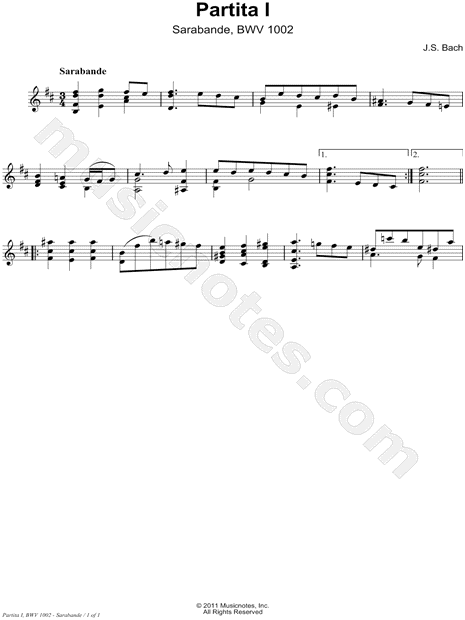Bach: Violin Partita I. Musicological question.
-
I was listening to the first Solo Violin Partita of Bach (BWV 1002), and was struck by the similarity between the opening of the Sarabande and the opening of the tune associated with Caswall's translation of Placare Christus (O Christ, thy guilty people spare, No. 185 in New Saint Basil). So I ask, is this similarity simply accidental; did 'H. Whitehead, OP' (to whom the tune is attributed in NSB) get inspiration from Bach; was the tune actually current in Bach's lifetime and did he 'bury' the whole tune within the Sarabande?
https://www.youtube.com/watch?v=UaMoPi9BOoQ (Sarabande ca. 11:30)

-
A brilliant observation!
I haven't as answer, but it is a worthy question.
Not unlike that of whether Bach and Buxtehude were consciously (or, even unconsciously) quoting St Anne with their respective fugues.
The list of such questions and unanswerables is endless. -
Another Bach thing, which I've noted before: Listen to the Gavotte from the Orchestra Suite No. 4, and compare it to Mendelssohn's tune for "Hark! the herald angels sing":
https://www.youtube.com/watch?v=Wled4aSHjIE
Nigel Poole, from Australia, noticed the formal musical & harmonic similarity between these pieces and came up with what he calls Bach's Christmas Carol, adapted from the Gavotte of the Orchestral Suite 4 in D.
The key has been lowered from D to G and notes redistributed to suit voices, and an introduction added (borrowed from 8 bars before the end). Otherwise Bach's music remains intact.
Here are the Score and MPEG recording by the Calgary Boys' Choir.
-
MJO, I believe that the St. Anne hymn tune came to be after Bach, but I could be mistaken.Thanked by 1M. Jackson Osborn
-
The hymn tune ST ANNE was composed (or published?) by William Croft in 1708. Bach (1685-1750) was alive when the tune appeared. Whether he knew of it, I'm not sure anyone knows. The Violin Partita No. 1 (BWV 1002) was composed in 1720.
Thanked by 1M. Jackson Osborn -
It seems more likely to me that if Bach was quoting anything it was the subject of Buxtehude's fugue in his E-Major Praeludium. Actually, I've always rather sort of thought it regrettable that the tag, 'St Anne', got applied to Bach's fugue.
-
I know this is an old post but it popped when I was doing some research on H. Whitehead. I believe the attribution "O.P." is a clerical error. I know the attribution "O.P." appears in a couple of hymnals the Westminster, 1912, and the N. St. Basil, 1958 as noted above. I have contacted the archivist for the US, English and Irish provinces and there is no priest H. Whitehead in any of the provinces. The English province archivist gave two possibilities:
There were two friars of the English Province in the latter part of the 19th century with the surname Whitehead:
Fr Andrew Whitehead O.P. (born 14th August 1841; died 3rd April 1907). This Whitehead was baptized Richard Standish Whitehead and became a friar in 1860, remaining a Dominican until his death.
Fr Anthony Whitehead O.P. (born June 1st 1854). This Whitehead became a friar in 1875, but had left the Order by 1889.
After careful review the English archivist ruled these men out as being H. Whitehead for the following reason. Most of H. Whitehead's compositions can be found in the Catholic Church Hymnal by E. Tozer, 1905 and 1933. A few more appear in the Treasury of Catholic Songs, 1915 and one instance in the Pius X Hymnal, 1953. None of these give the attribution "O.P."
Regarding the tune in the original post, this is a very different melody than that in the Catholic Church Hymnal for the same text and composer.
 Pages from 1905 - Catholic Church Hymnal - Tozer.pdf52K
Pages from 1905 - Catholic Church Hymnal - Tozer.pdf52K -
There is an article somewhere, which shows that the Bach fugue theme from St. Anne was bounced around by many composers before Bach. Bach pulled all the fragments of it together in his brilliant way. Geniuses are kind of like that.
-
'St Anne' is far from Bach's pickings from elsewhere. The subject of one of his C-Major fugues is identical to that of Bohm's great C-Major praeludium. Probably not a coincidence because on the authority of Karl Philip Emmanuel (though some contest this) Bach studied for a while with Bohm. What we today call 'plagiarism' was in those days called a 'compliment'.
Welcome to the MusicaSacra Forum!
To participate in the discussions on Catholic church music, sign in or register as a forum member, The forum is a project of the Church Music Association of America.
Categories
- All Discussions21,281
- General Music Discussion8,297
- Job Openings216
- Management of Music Programs852
- Choral Matters534
- Church Documents and Rubrics528
- CMAA Notes304
- Events730
- For Newcomers: Read First26
- Sacred Polyphony550
- Hymnody875
- Gregorian Chant: General2,711
- ↳ Graduale Romanum and Liber Usualis370
- ↳ Graduale Simplex60
- ↳ Semiology63
- Vernacular Plainsong698
- Anglican Use and Anglican Chant68
- Organ, Other Instruments and Repertoire438
- New Composition/Works in Progress1,302
- Recordings234
- Music for Hispanic Ministry162
- Music Education: Children213
- Music Education: General222
- News Items245
- Positions Wanted3
- General Discussion: Catholicism740
- Amusements177
- General Discussion1,037
- Opinions119



